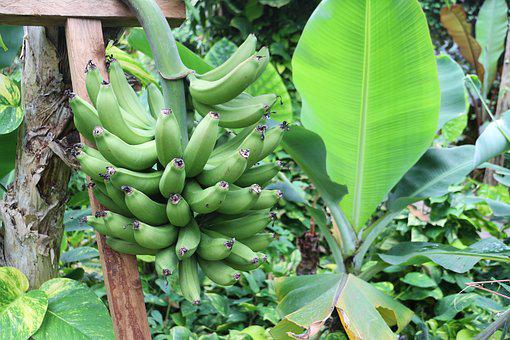
As climate change effects intensify, shifting weather patterns happen more frequently. This situation caused rising trends of pest attacks in plantations, which have been reported globally. This situation worsens as commercial fruit bunches with similar genetic information are more vulnerable to diseases. This problem is a primary issue for banana plantations. Therefore, breeding climate-resilient food crops such as the banana, is more important than ever.
Malaysia is one of the centres of origin of bananas, in addition to Indonesia, the Philippines, Papua New Guinea, and India. This crop is an important resource for our country’s biodiversity, conservation, and breeding studies. However, there is a lack of information about our bananas in publicly available databases. We were clueless when we discussed wild bananas and had no idea where to find them. We wanted to start tracking their locations, but sadly, we are a small team lacking resources and a workforce. We could not conduct a nationwide survey on wild bananas in lowland or highland regions.
When thinking about these problems, I found two possible solutions. First is the traditional way of collecting data, in which only scientists do field surveys of wild banana distribution in forests. However, conducting the study nationwide would not be possible. Second, since we are a small team working on a tight budget, we need more volunteers to collect observation data on wild bananas.
To solve these challenges, we launched the Banana Hunter project during the Malaysia National Banana Congress 2021 to crowdsource laypeople or amateur scientists who will help record observation data by photographing geo-located banana species using our developed mobile “MusaHunter” app. In small workshops, project participants will learn basic curation and banana taxonomy skills – for example, the scientific names of bananas and how banana leaves, fruit bunches, and flowers look. What excites them the most is the opportunity to apply the skills they have learned in the field.
Allowing members of the public to help scientists collect and analyse scientific data is an alternative research approach called citizen science. By spreading the responsibility for data collection across dozens or hundreds of the public, the bigger scale research projects become more feasible and achievable. Of course, citizen science has drawbacks; for instance, unskilled citizen scientists may introduce errors in the data collected. However, suppose citizen scientists are well-trained, and data collection is done responsibly. In that case, the created high-quality datasets can be more massive in volume than the amount scientists could collect independently.
Many resources are available to help the public get involved with citizen science projects. Some of these are publicised on iNaturalist, a successful crowdsourcing citizen science platform. This platform hosts a variety of citizen science projects in the fields of biodiversity, astronomy, social science, and biology. The platform has recorded 15 million observations of wildlife from all over the world. Using these rich datasets, scientists can study and publish papers in different areas, including wildlife distribution patterns, migration, and morphological changes.

Citizen science has changed research dynamics and the ideological belief that science is for scientists only. From the historical perception of scientists being associated as ‘exclusive’ and dissociated from the community, the current trend has shifted towards engaging more of the public to participate in research. In our case, the public has an opportunity to help in banana conservation and breeding studies. All these prove that “science is not for scientists only”.
Note: The author is a senior lecturer at the Centre for Biotechnology Research for Agriculture (CEBAR), Universiti Malaya.



